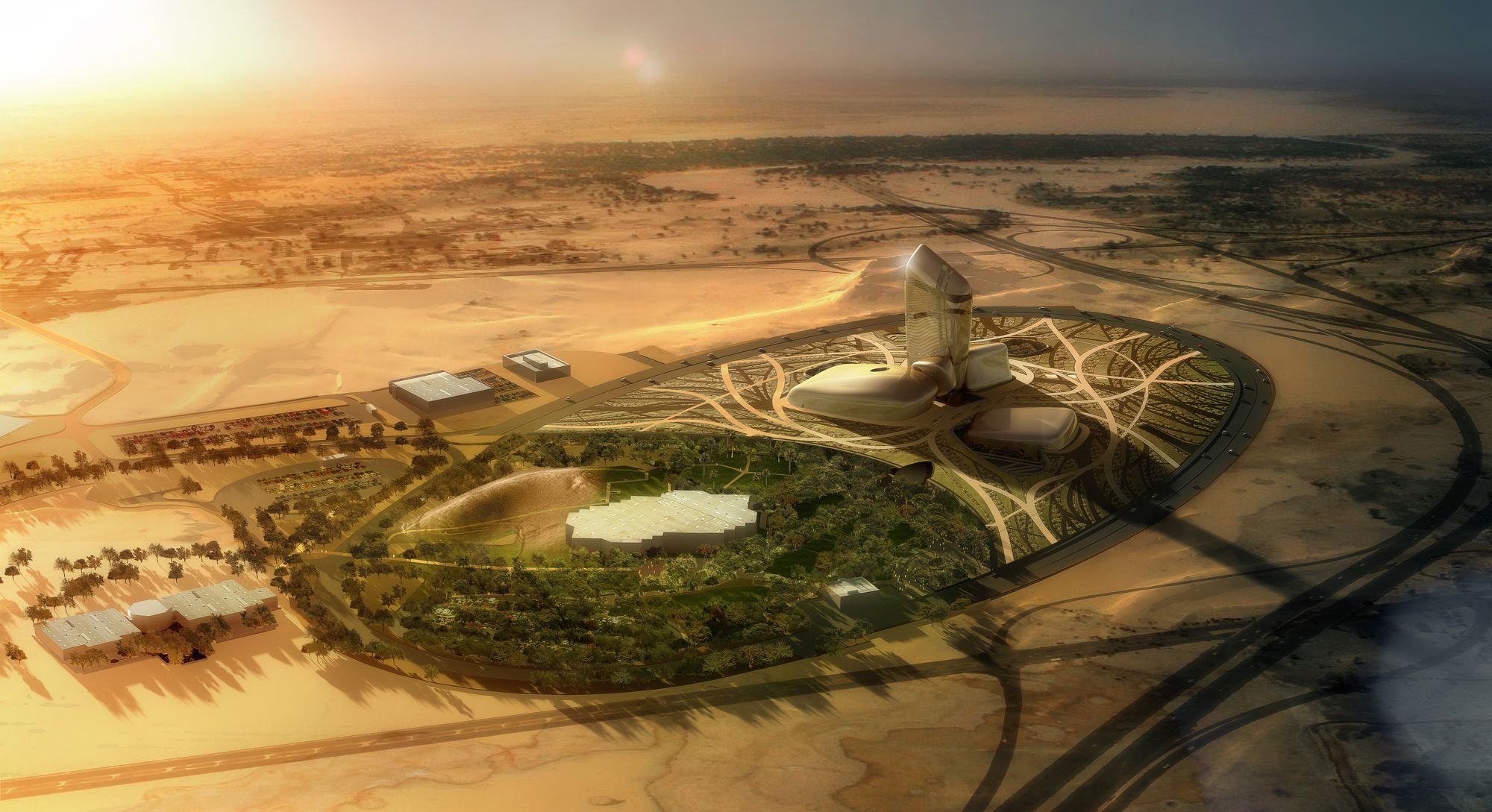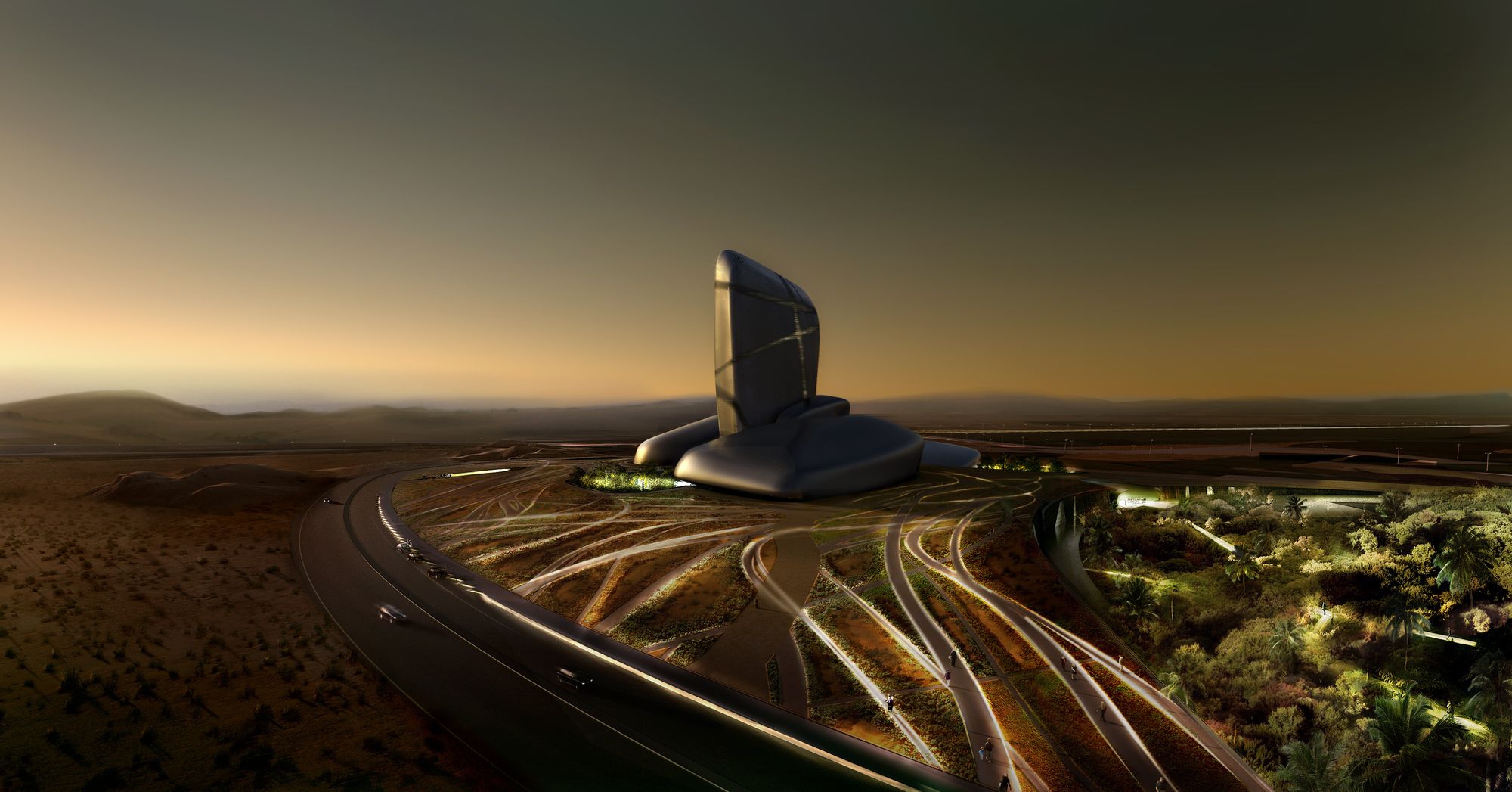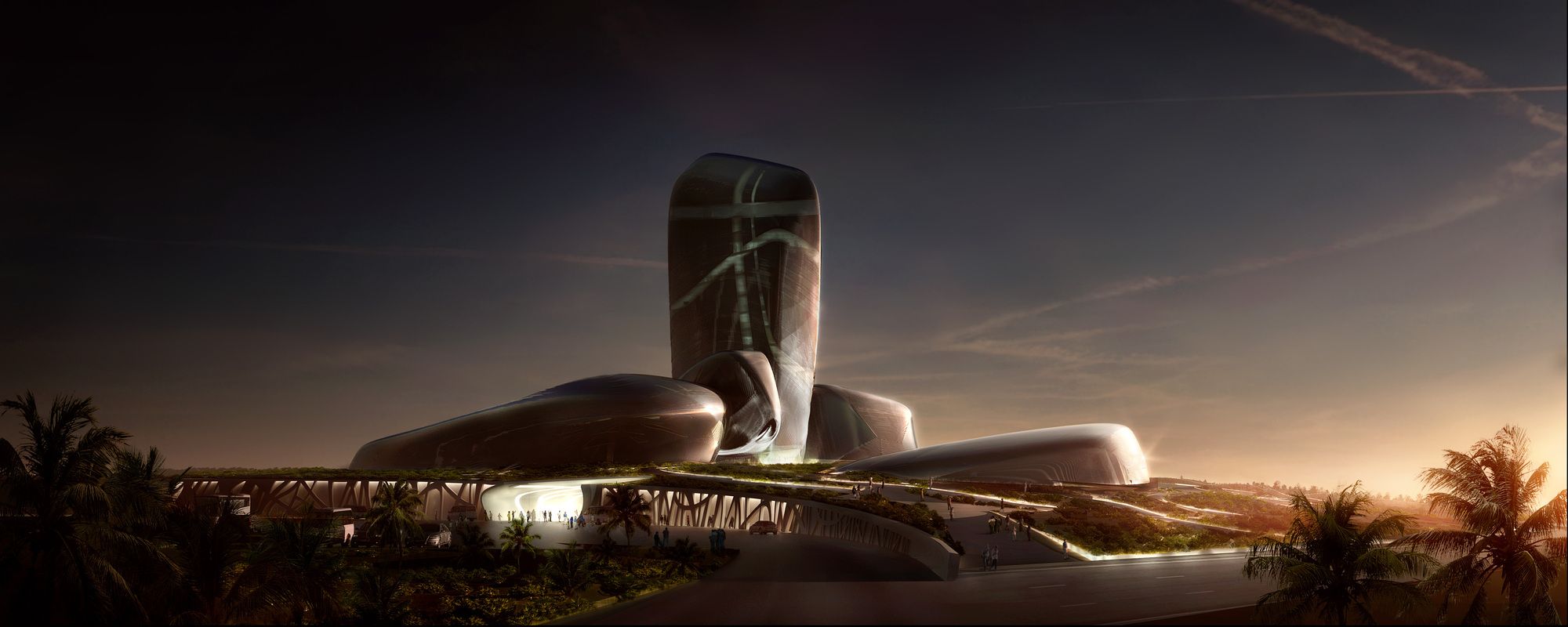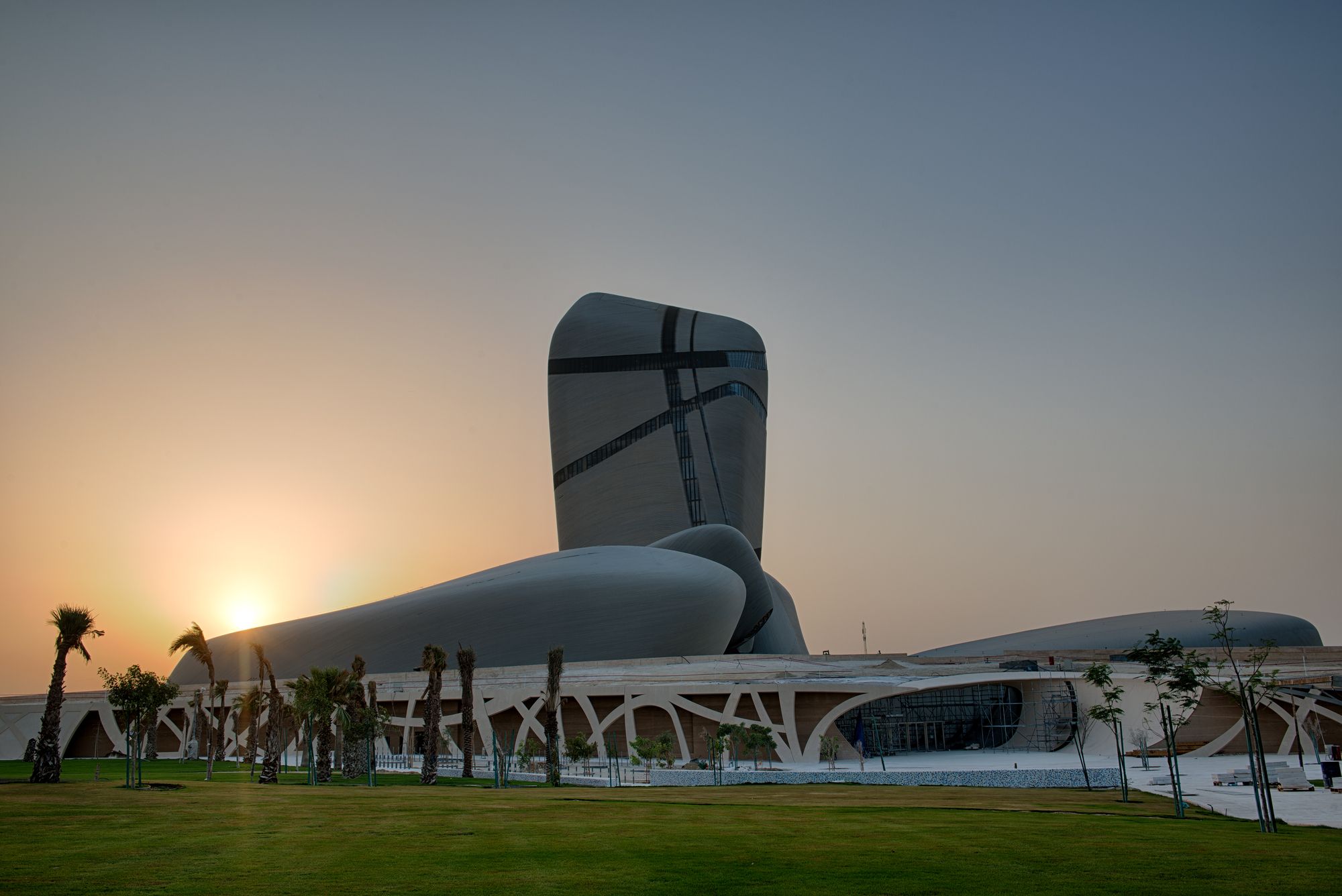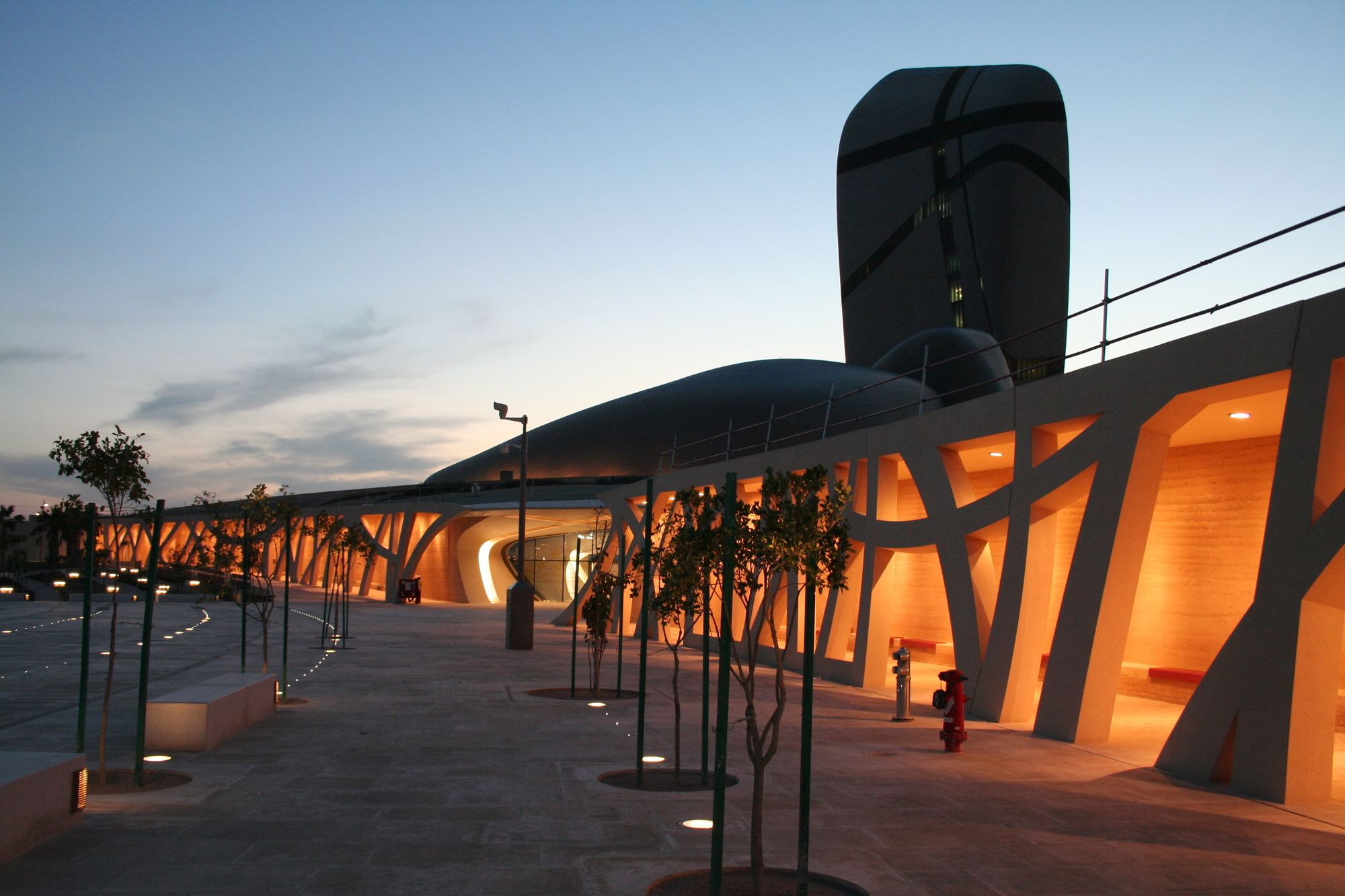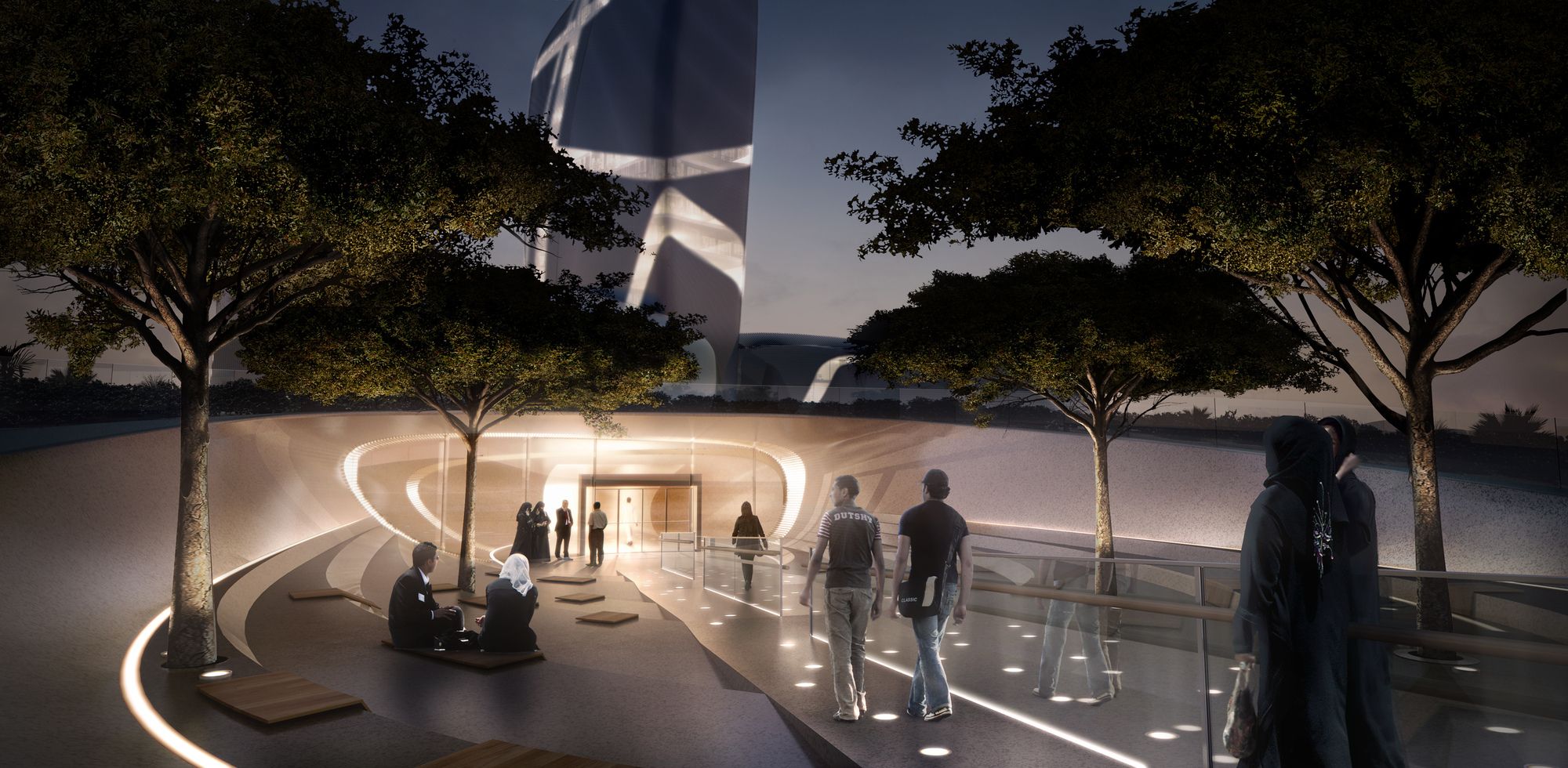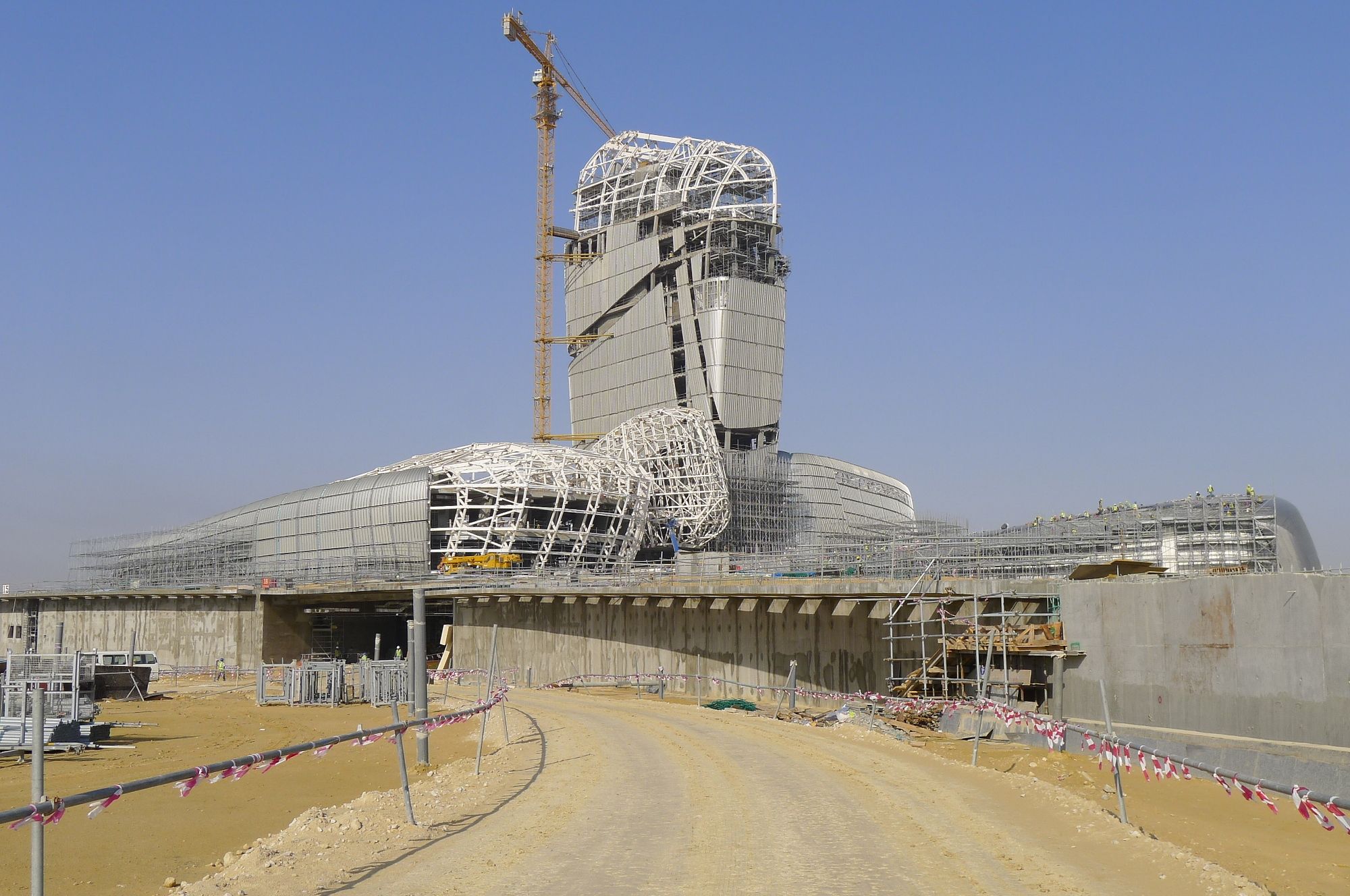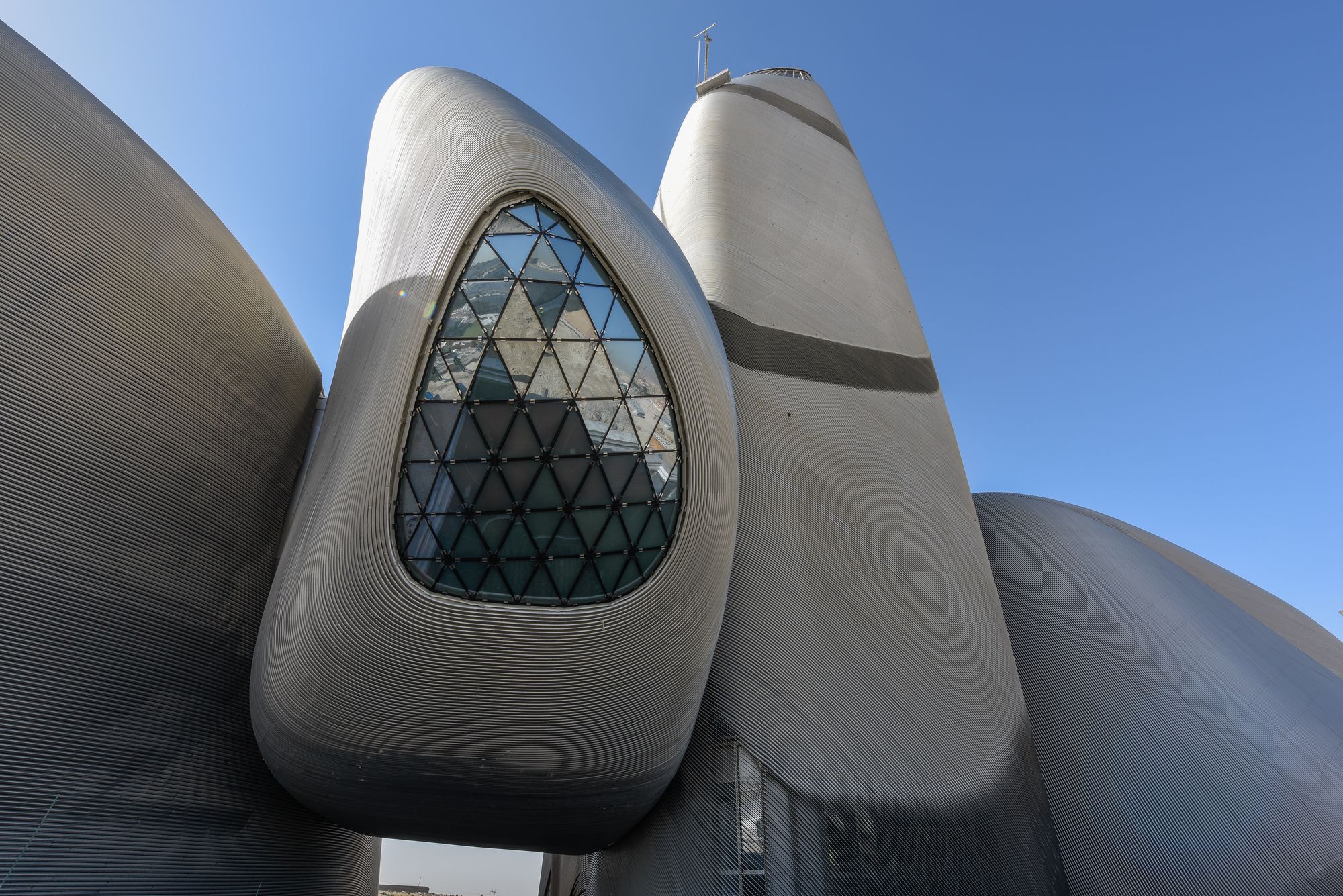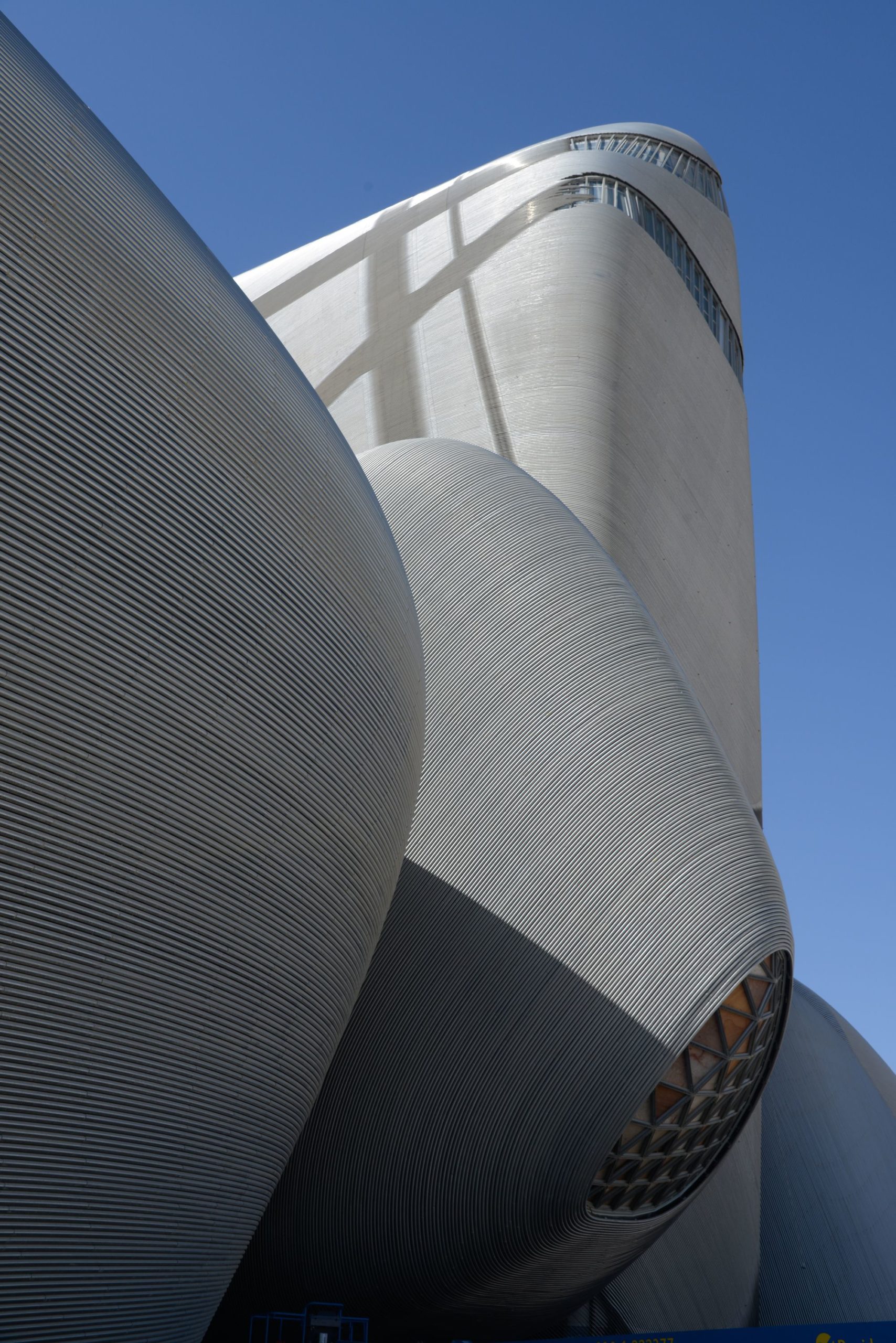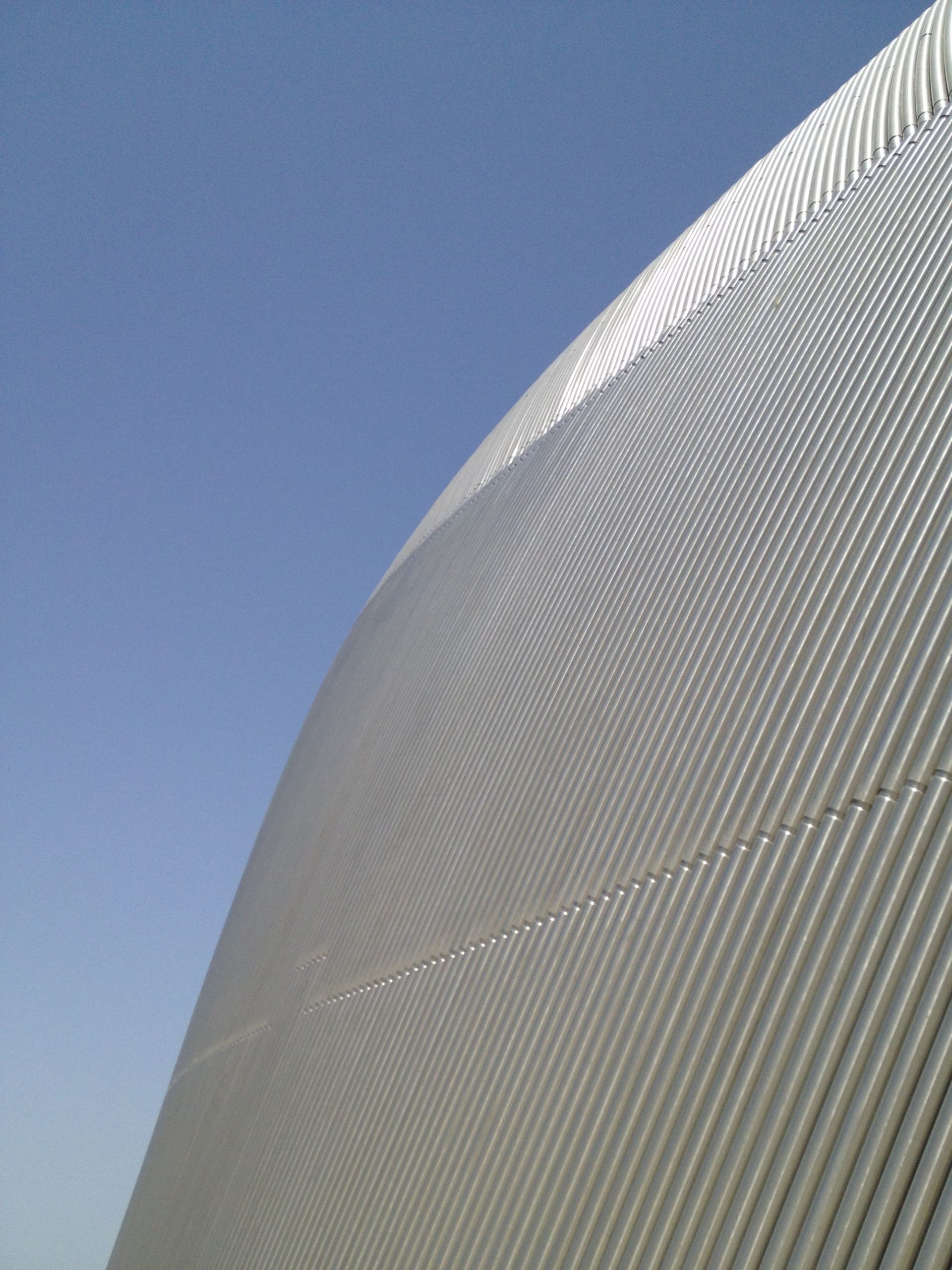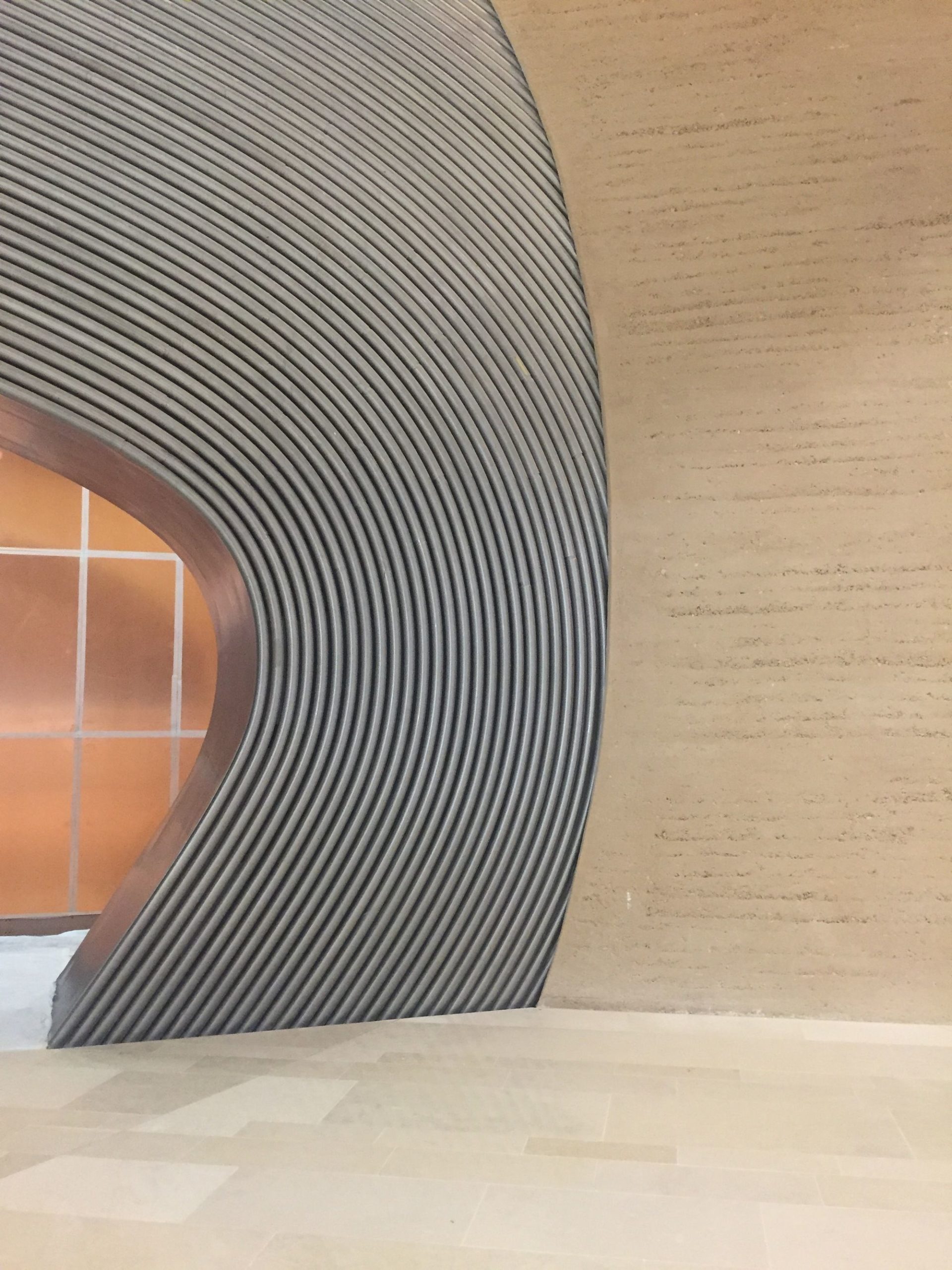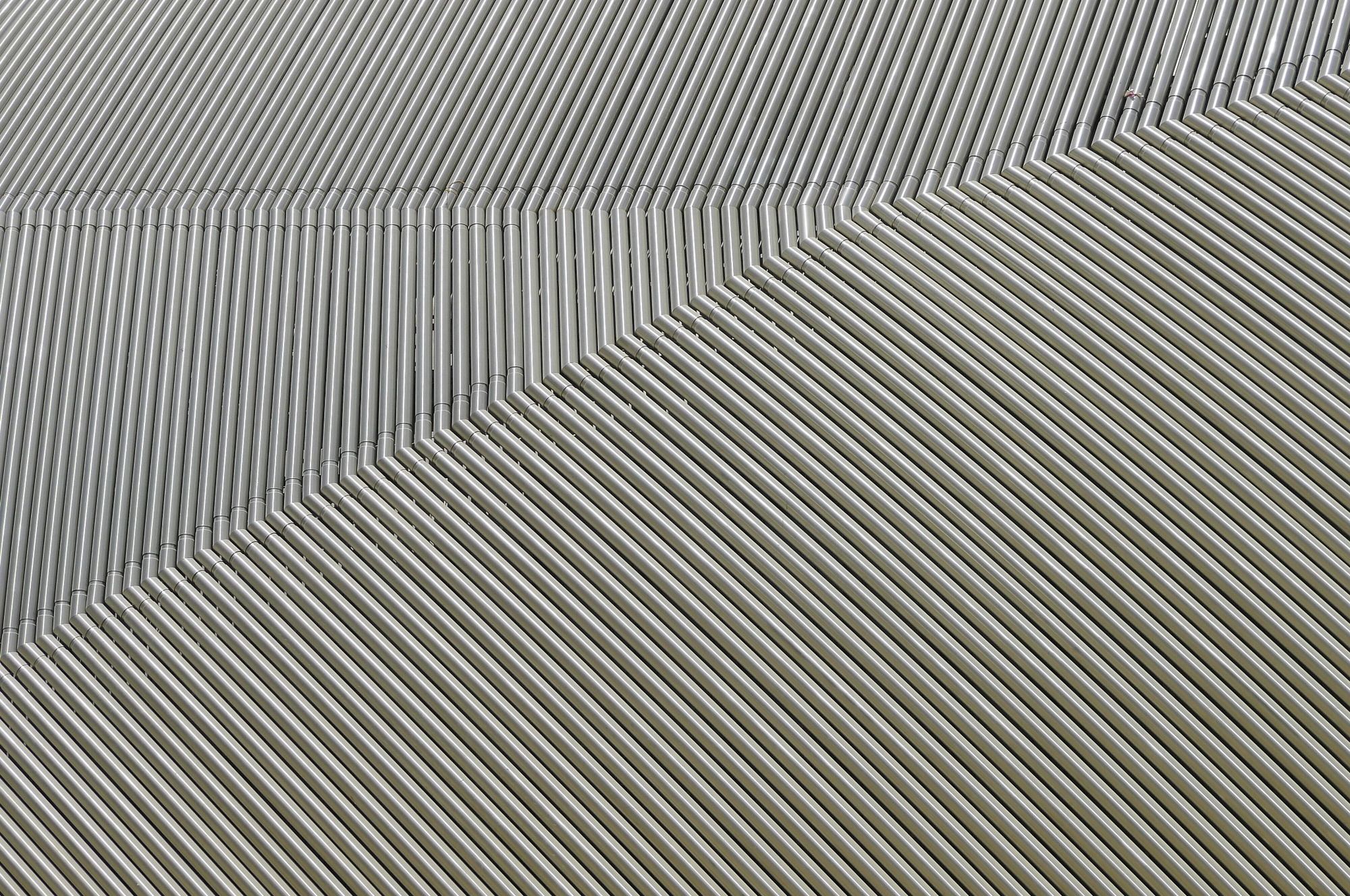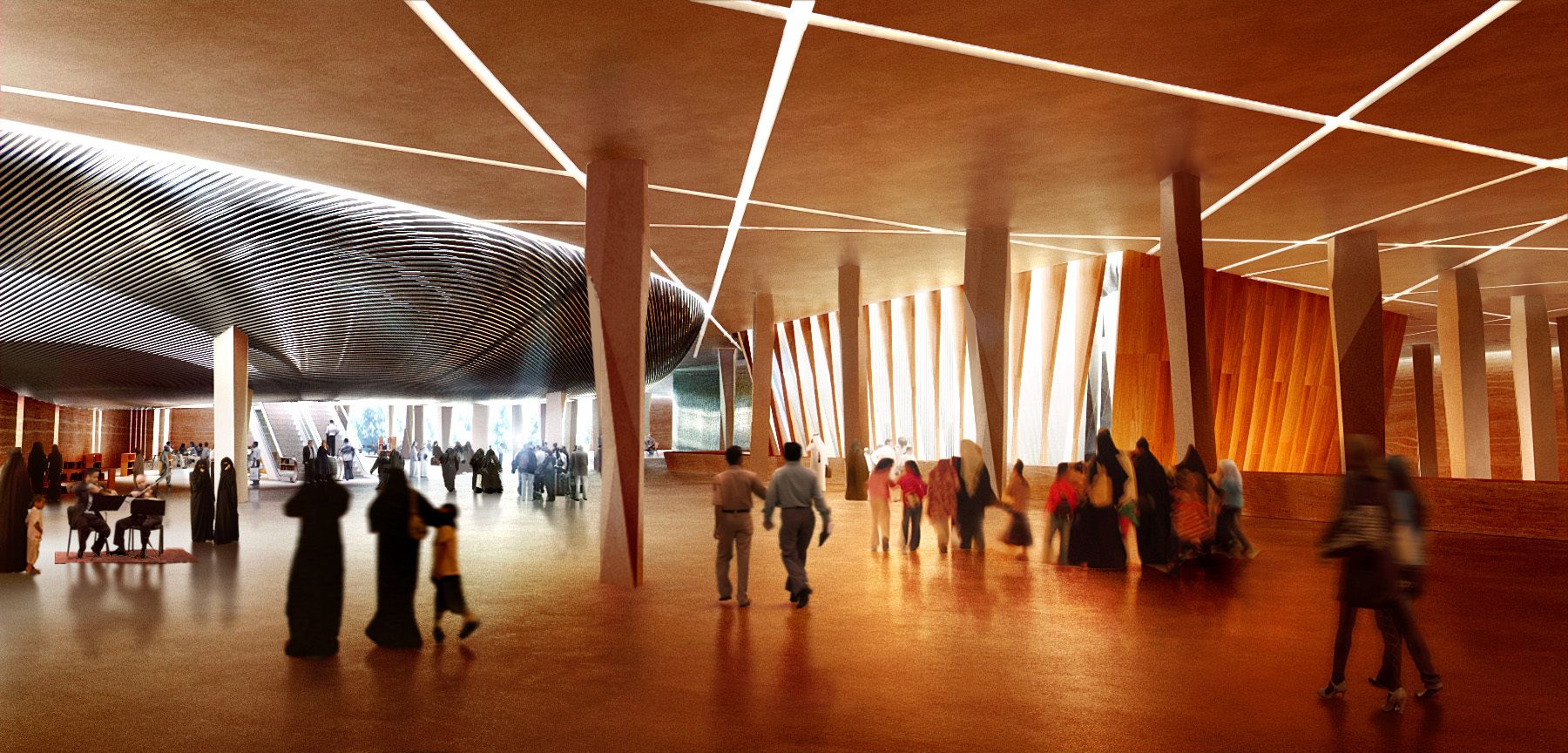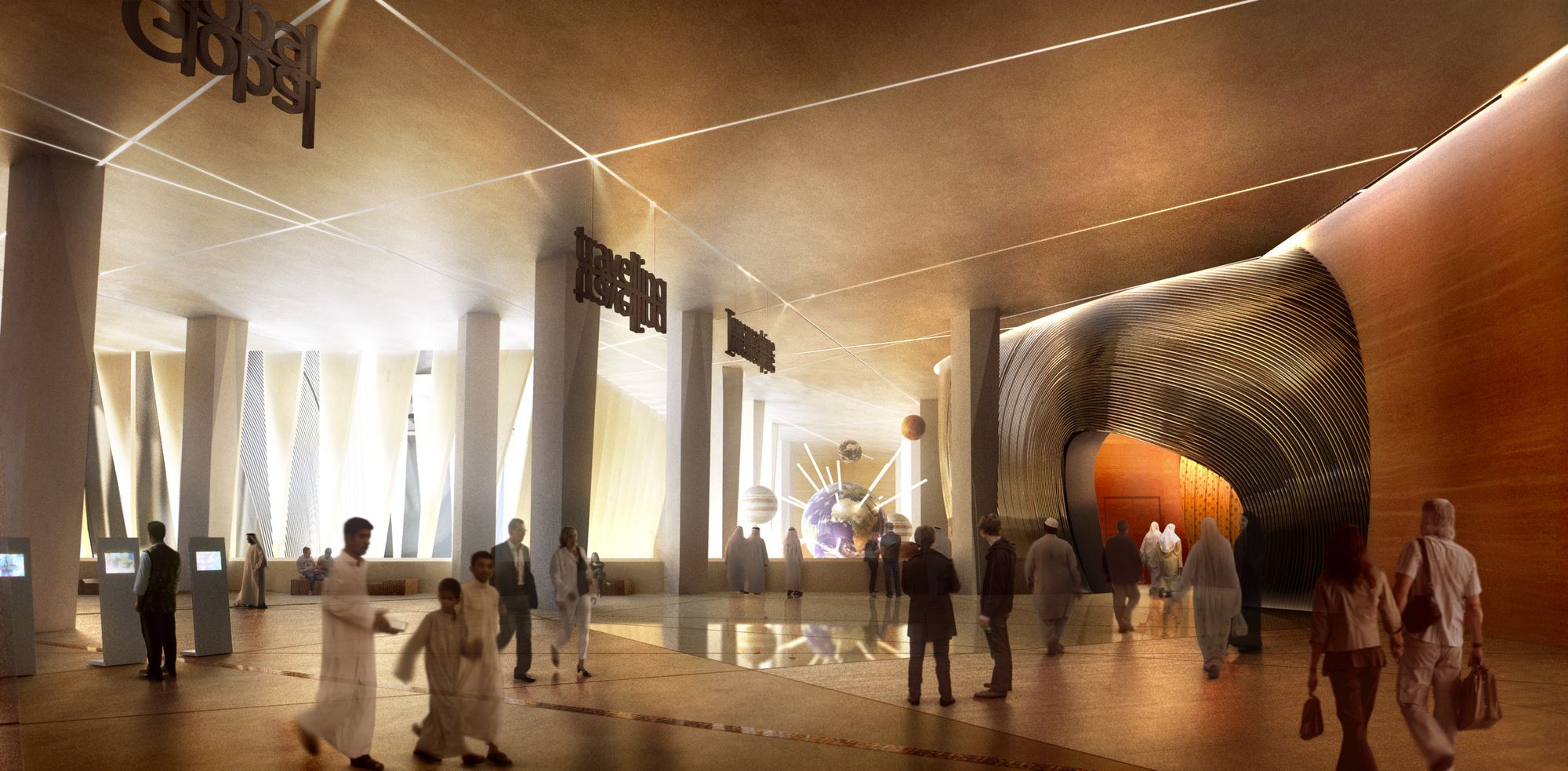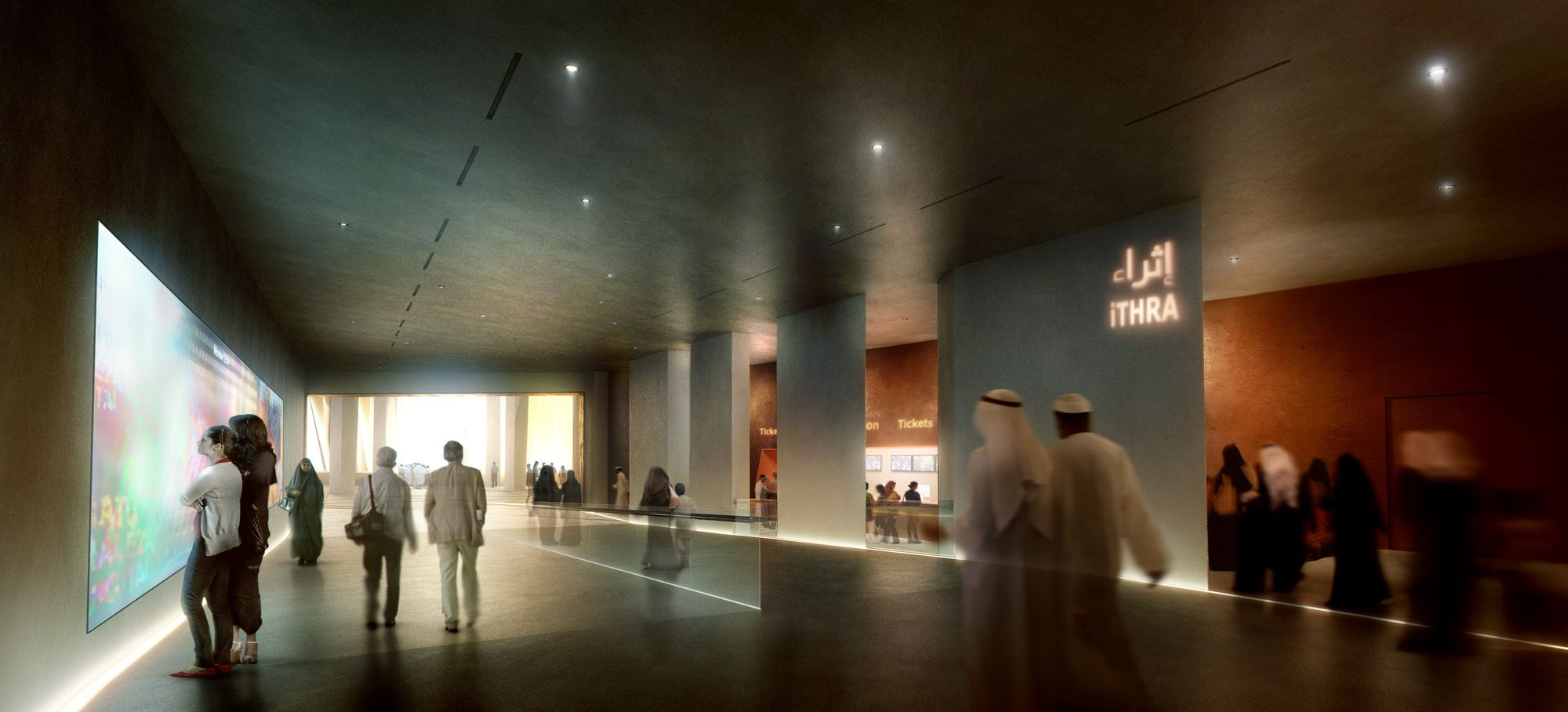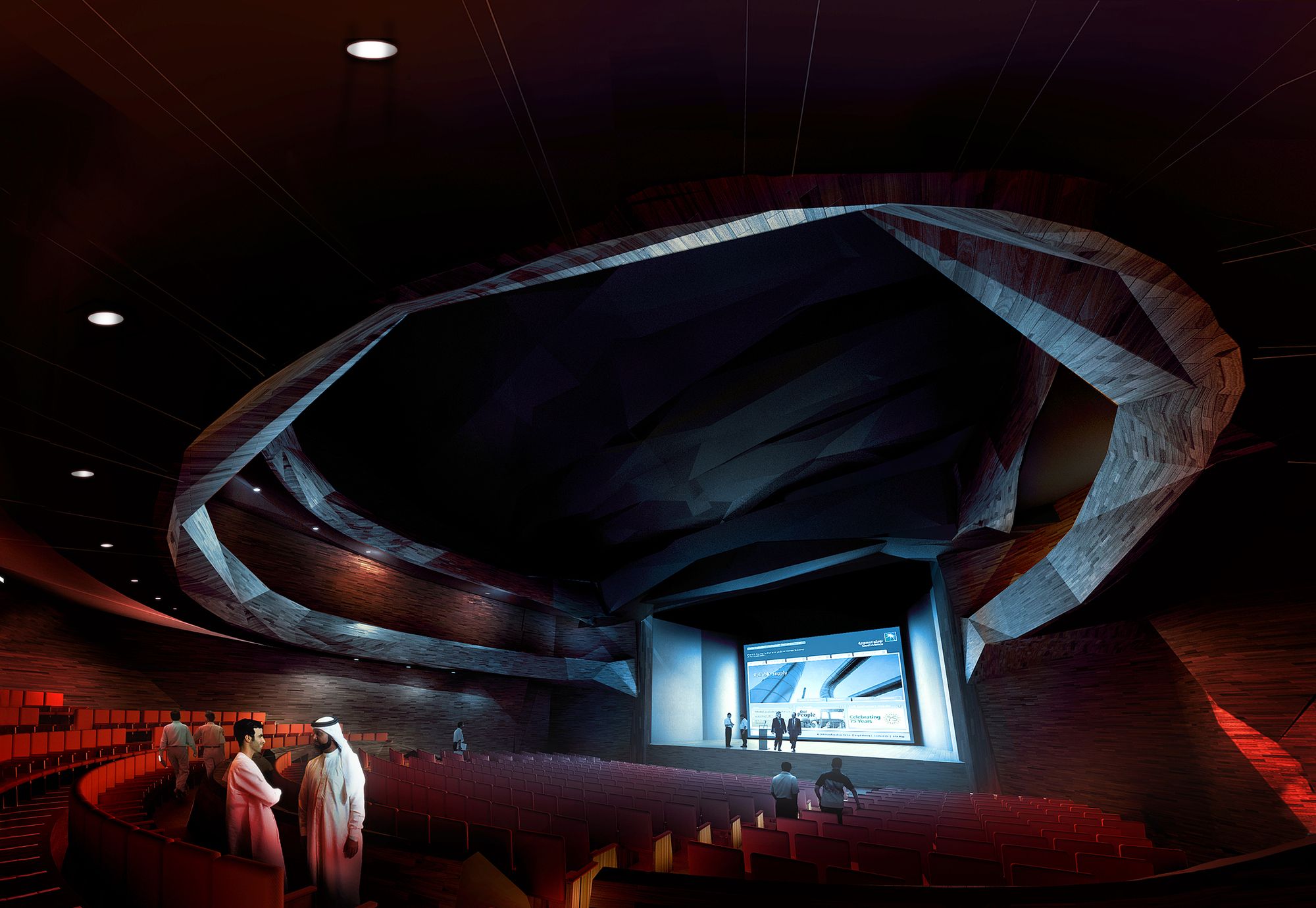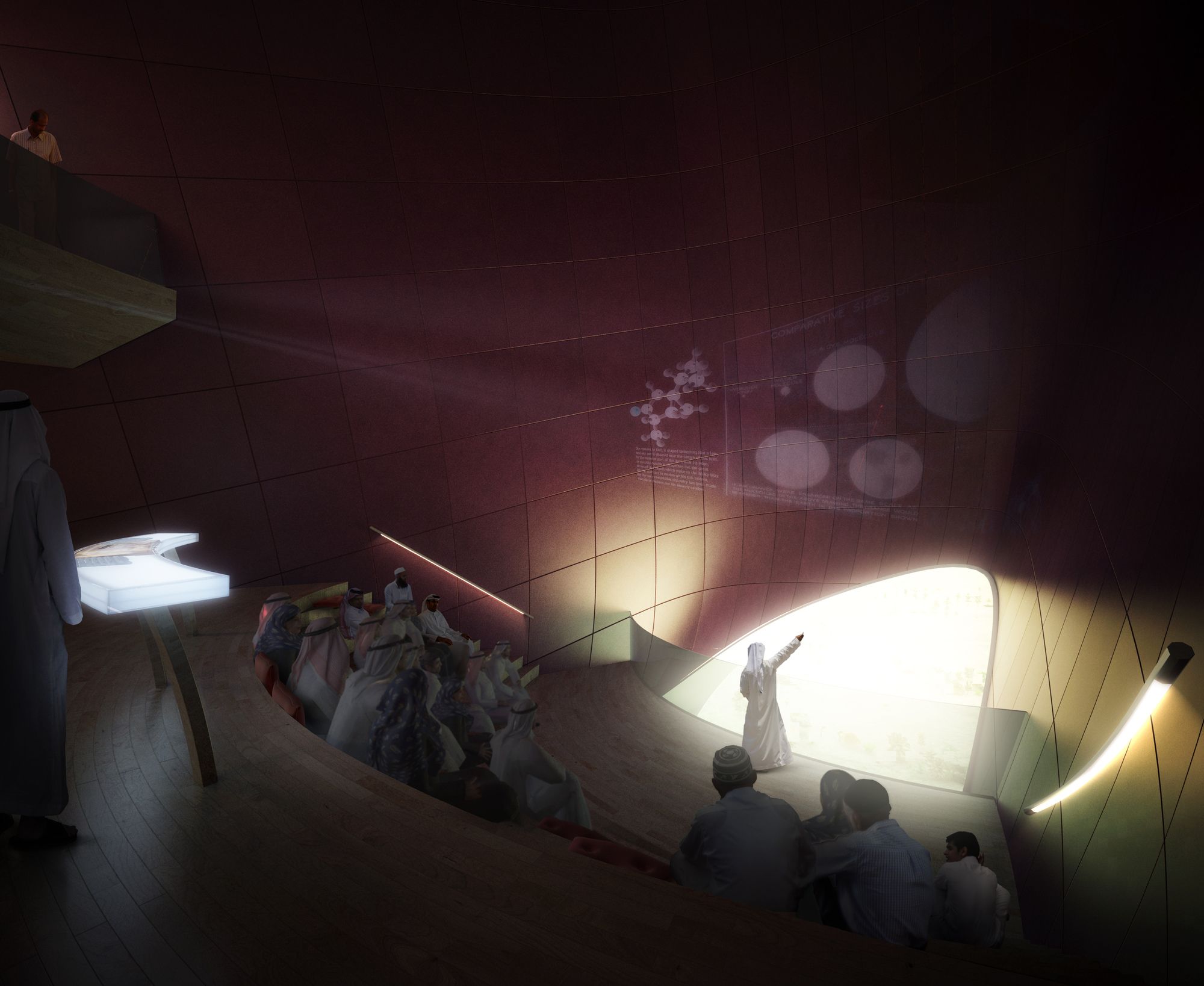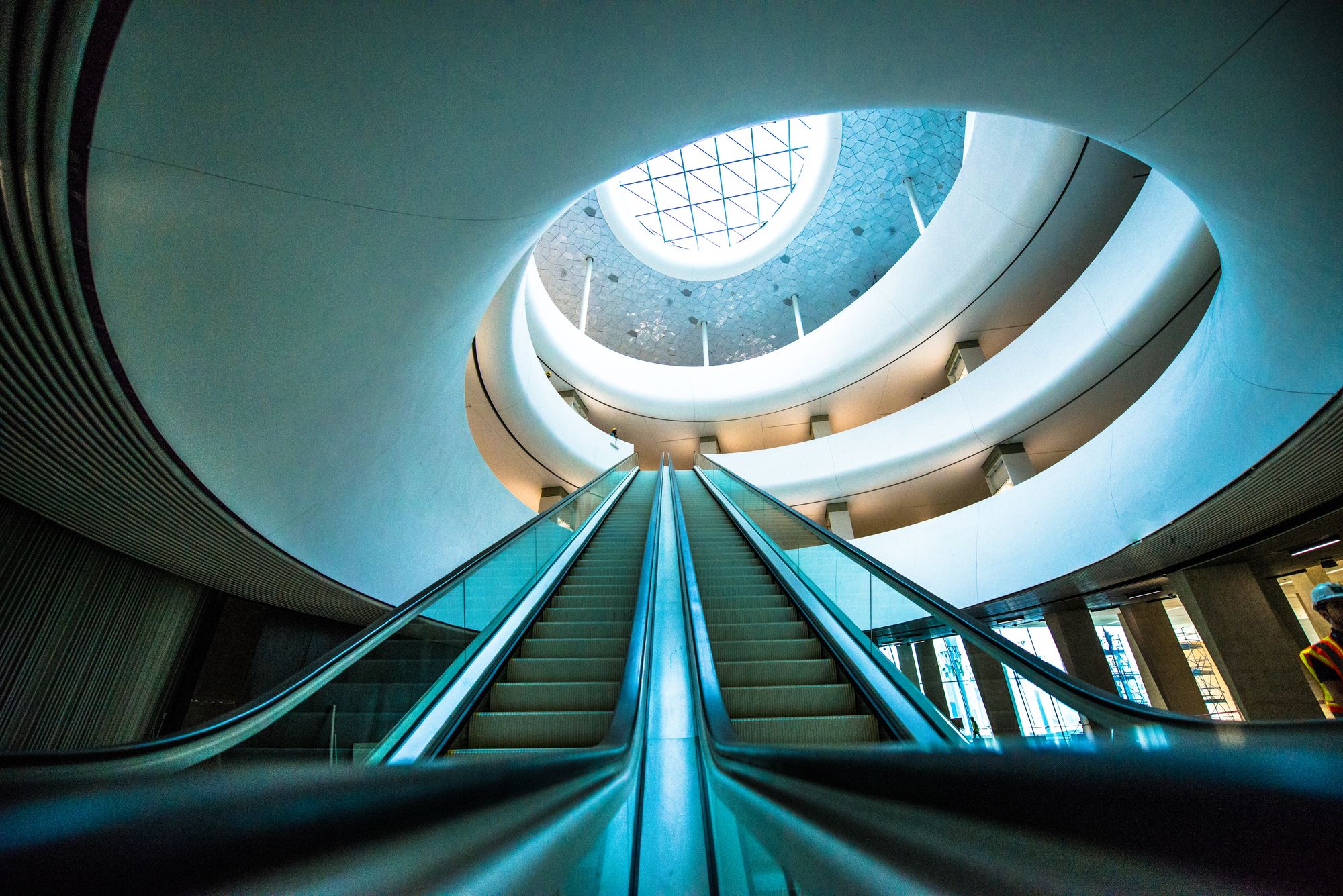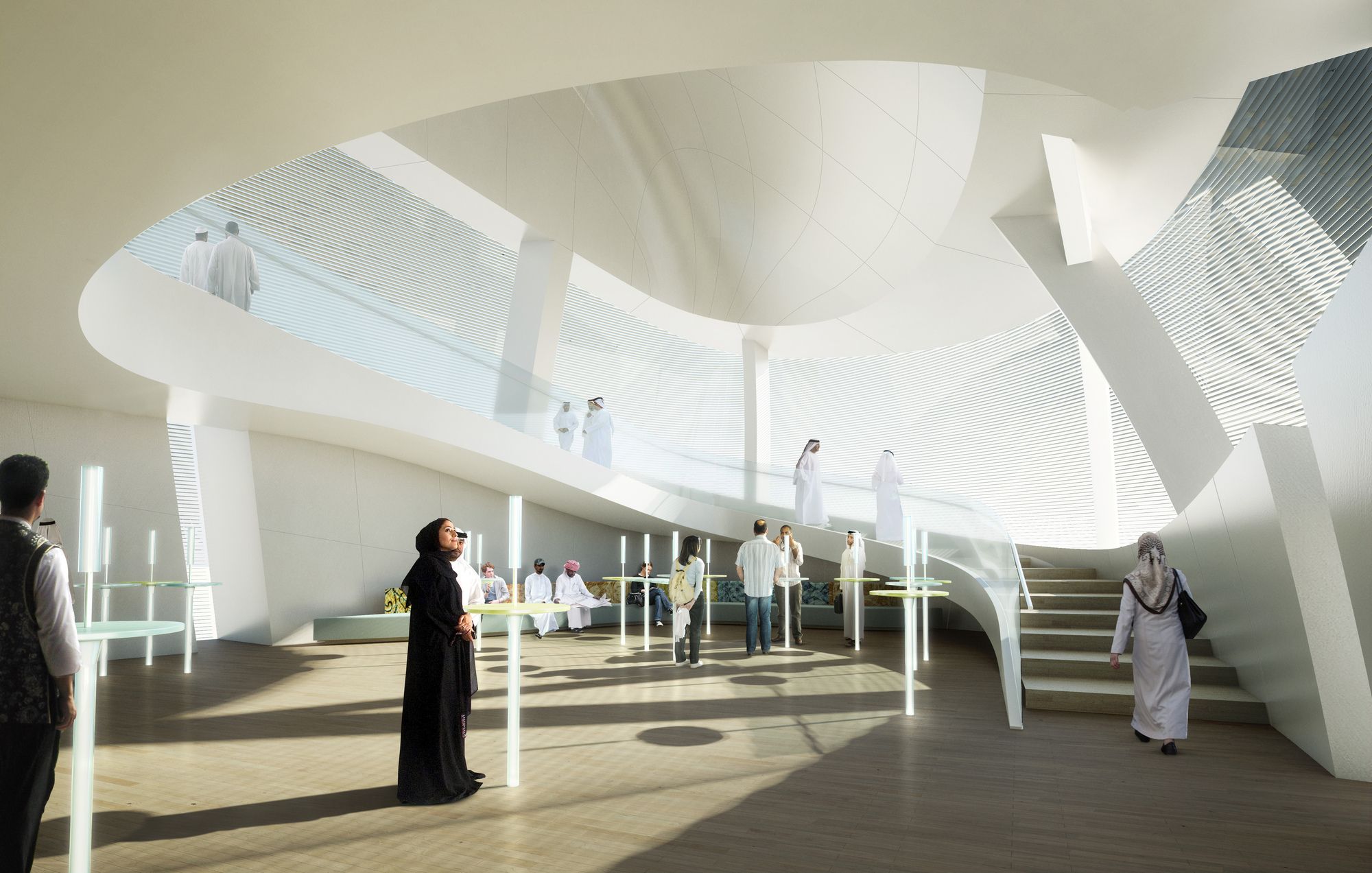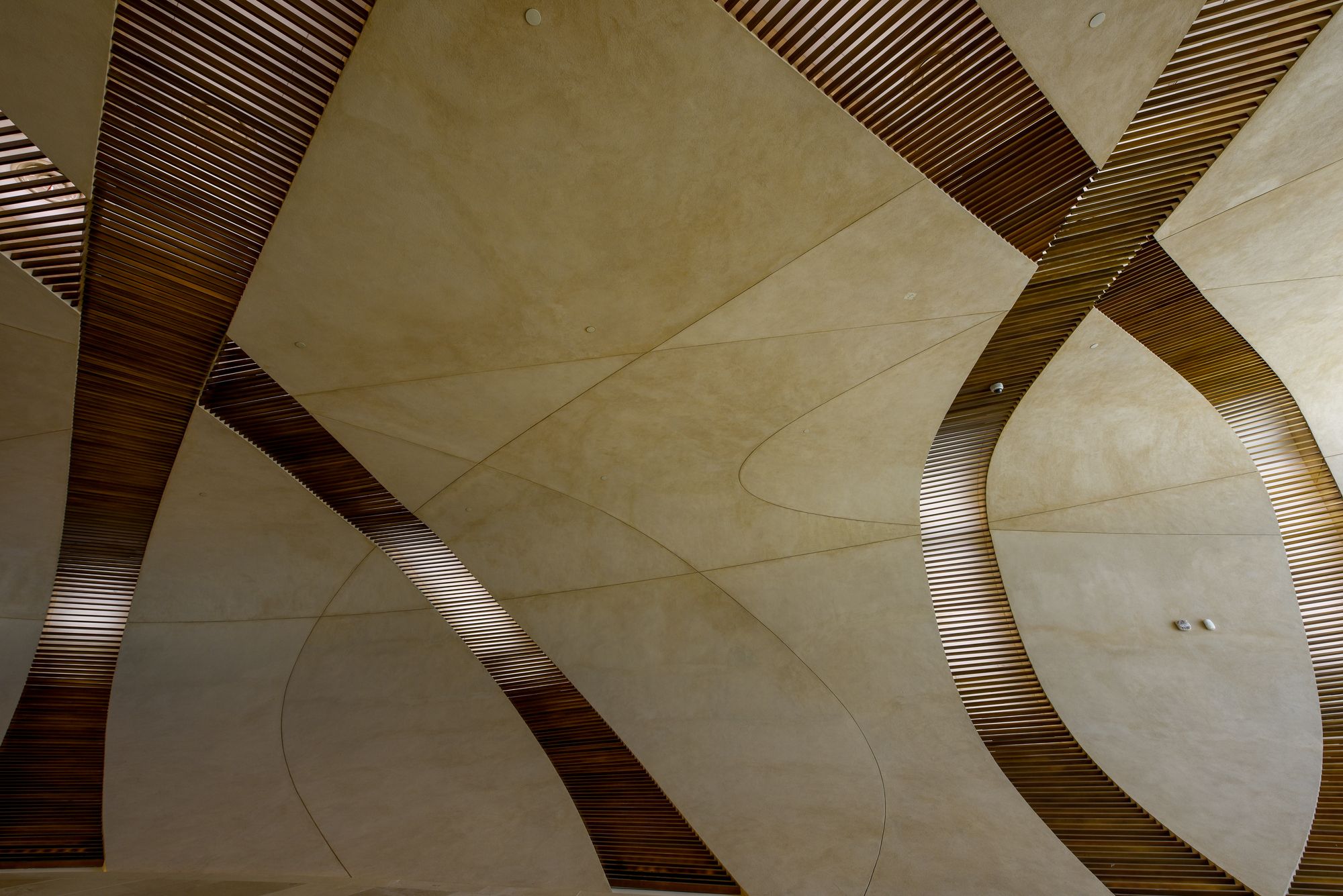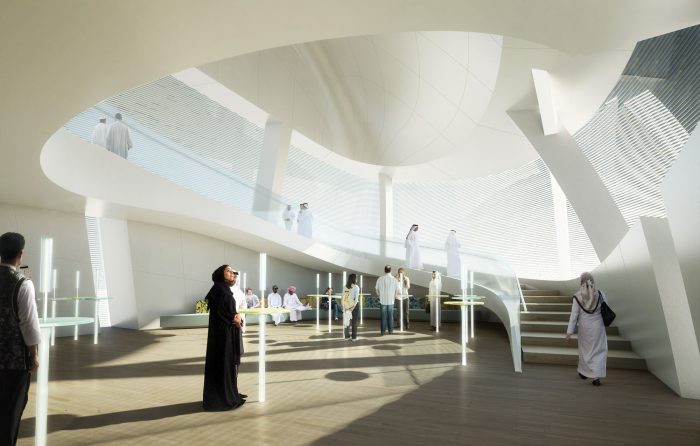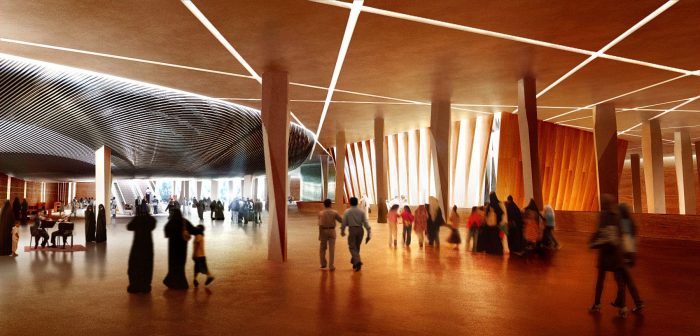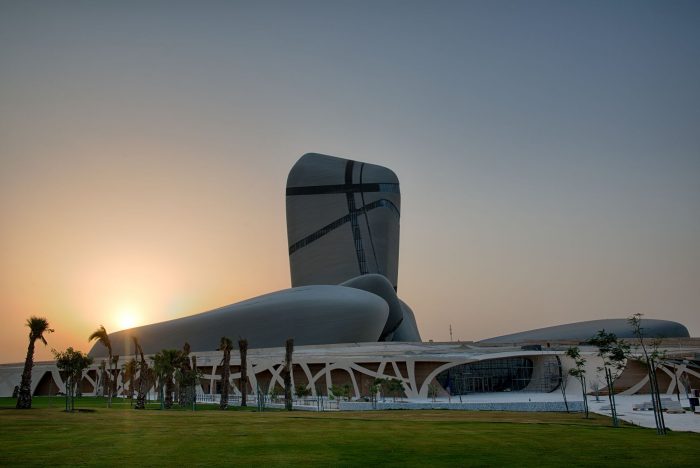Designed by Snøhetta, The King Abdulaziz Center for World Culture is a bold new initiative on the part of the Saudi Aramco Oil Company to promote cultural development within the Kingdom. Following an invited architectural design competition in 2007, Snøhetta has been selected to design this prestigious cultural facility. Located in Dhahran, in the eastern province, the cultural center will provide for a wide range of activities serving the local population and becoming a cultural landmark on a regional, national, and global horizon. When completed, the project will contain diverse cultural facilities, including an auditorium, cinema, library, exhibition hall, museum, and archive.
Located in Dhahran, in the eastern province, the cultural center will provide for a wide range of activities serving the local population and becoming a cultural landmark on a regional, national, and global horizon. When completed, the project will contain diverse cultural facilities, including an auditorium, cinema, library, exhibition hall, museum, and archive.
The auditorium will seat 930 visitors and will provide for a wide range of events ranging from opera, symphony concerts, musicals, and speeches etc. Together with the smaller cinema, this will be an unrivaled venue for the performing arts in the Kingdom.
The library will become a center for learning, containing some 200 000 books on open access, and catering for all ages and categories of users. The great exhibition hall will accommodate large-scale traveling exhibitions, as well as providing the setting for social events, banquets, and conferences. The museum and archive facilities connect the vibrant cultural life of the center to the past and to the very roots of the society from which this center is conceived.
The great exhibition hall will accommodate large-scale traveling exhibitions, as well as providing the setting for social events, banquets, and conferences. The museum and archive facilities connect the vibrant cultural life of the center to the past and to the very roots of the society from which this center is conceived.
On May 20, 2008, the foundation stone was laid by King Abdullah.
The Cultural Center is expected to be completed in 2017. An opening date is not yet announced.
The architectural concept is based upon the following six concepts: 1. The Past and the FutureCulture grows out of the past, without culture, no community or company can create a future. The design for the Saudi Aramco Cultural Center embraces both past and future, captured in the present. Both in terms of architectural expression and internal logic, this proposal digs down into the past and reaches up into the future.2. Introvert and Extrovert. The concept is both introverted and extroverted. Below grade, the museum and archive functions are grouped around the inner void, looking inwards to the truths and knowledge to be found within Saudi Aramco and the Kingdom of Saudi Arabia. Above the grade, the composition reaches out of the ground, connecting to the world beyond.
1. The Past and the FutureCulture grows out of the past, without culture, no community or company can create a future. The design for the Saudi Aramco Cultural Center embraces both past and future, captured in the present. Both in terms of architectural expression and internal logic, this proposal digs down into the past and reaches up into the future.2. Introvert and Extrovert. The concept is both introverted and extroverted. Below grade, the museum and archive functions are grouped around the inner void, looking inwards to the truths and knowledge to be found within Saudi Aramco and the Kingdom of Saudi Arabia. Above the grade, the composition reaches out of the ground, connecting to the world beyond.
3. Repository and BeaconLocated below the grade, the museum and archive becomes a true repository of knowledge in protective surroundings and stored for posterity. In contrast, the Library, Children’s Exhibit, and the Visitor Centre are expressed as beacons to scholars across the world. 4. Diversity and Unity. This design takes the form of a complex composition, consisting of a number of individual and discrete components. Balance and harmony are created through interdependence. Each component is fashioned as a unique and tailor-made entity, conforming to and expressive of its own individual needs and requirements.
4. Diversity and Unity. This design takes the form of a complex composition, consisting of a number of individual and discrete components. Balance and harmony are created through interdependence. Each component is fashioned as a unique and tailor-made entity, conforming to and expressive of its own individual needs and requirements.
5. Teamwork. Not one component can be removed. All are interdependent and rely upon each other. The resulting composition is an expression of teamwork. Each part can be endlessly adjusted to suit the individual and speci c needs. This form for exibility is not general or universal, but speci c and individual.
6. Energy. The balance and harmony of the composition are not static, but dynamic, expressive of the teamwork, and above all of the energy to be found in the people that comprise Saudi Aramco and Saudi Arabia. Evoking the wonder and bearing memory of the steadfast endurance and hard labor under severe conditions in the pioneer striking of oil.
 Project Info:
Project Info:
Architects: Snøhetta
Location: Dhahran, Saudi Arabia
Client: Saudi Aramco
Area: 100000.0 m2
Project Year: 2017
Manufacturers: MDT-tex
Project Name: King Abdulaziz Centre for World Culture
All Images Courtesy of Snøhetta
